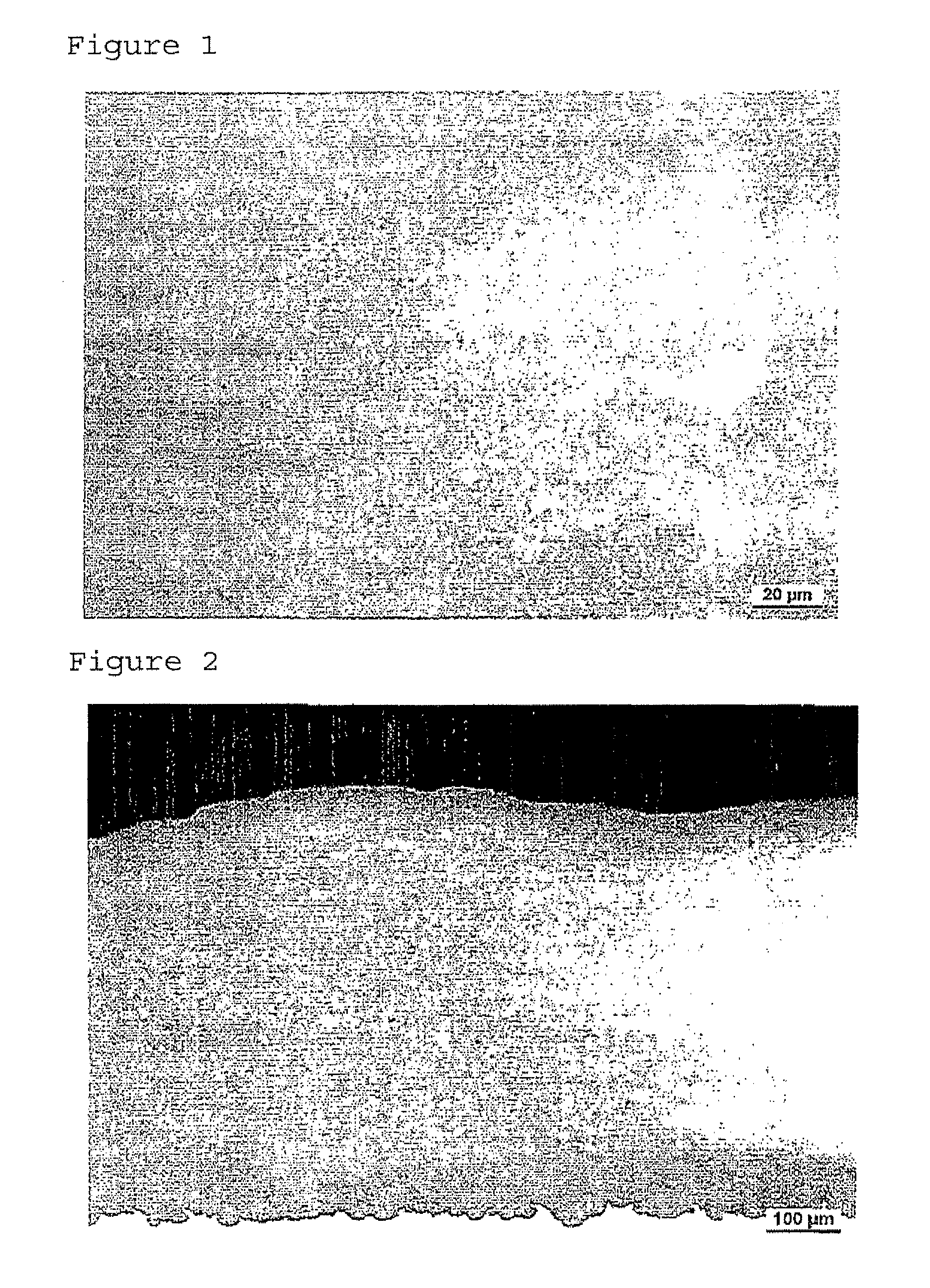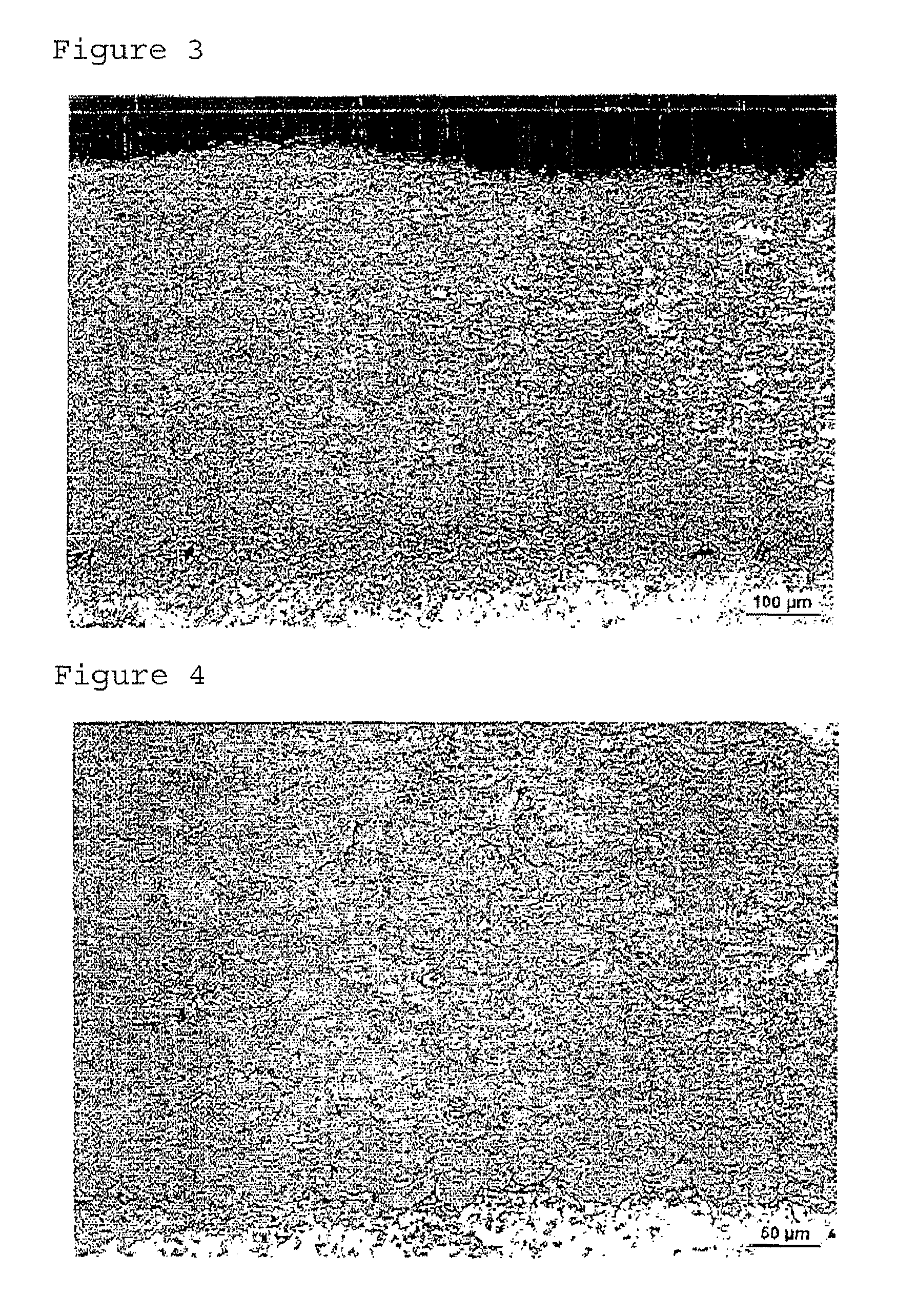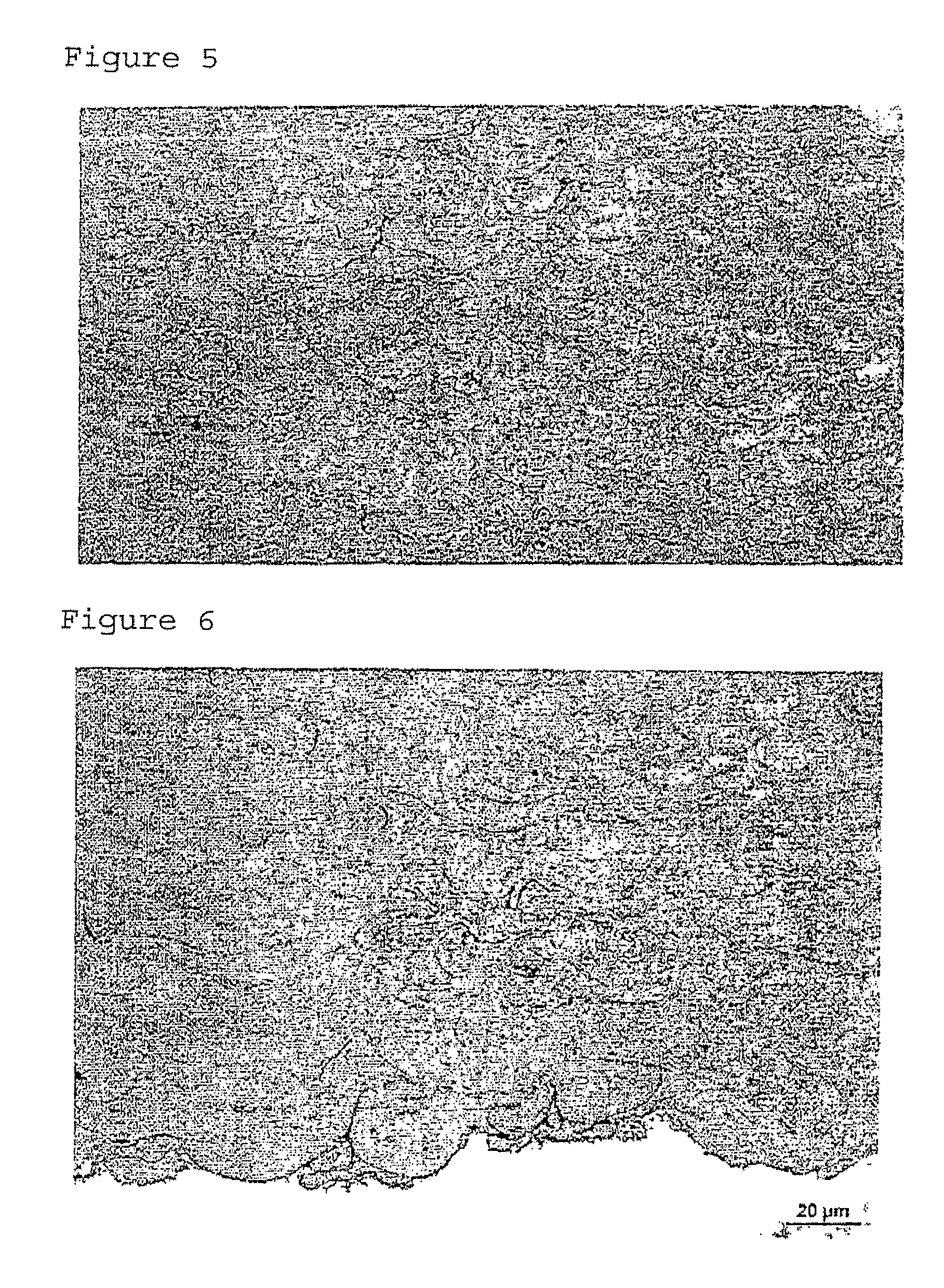Low-energy method for fabrication of large-area sputtering targets
a sputtering target and low-energy technology, applied in the direction of magnets, x-ray tube target materials, magnets, etc., can solve the problems of limited structural components, high apparatus outlay, and numerous problems of surface application of refractory metal layers, etc., to achieve low apparatus outlay and broad applicability
- Summary
- Abstract
- Description
- Claims
- Application Information
AI Technical Summary
Benefits of technology
Problems solved by technology
Method used
Image
Examples
examples
Process for the Preparation of Suitable Powders
[0174]Preparation of a Tantalum Powder
[0175]A tantalum hydride powder was mixed with 0.3 wt. % magnesium and the mixture was placed in a vacuum oven. The oven was evacuated and filled with argon. The pressure was 860 mmHg and a stream of argon was maintained. The oven temperature was increased up to 650° C. in steps of 50° C. and, after a constant temperature had been established, maintained for four hours. The oven temperature was then increased up to 1,000° C. in steps of 50° C. and, after a constant temperature had been established, maintained for six hours. After this time had elapsed, the oven was switched off and cooled to room temperature under argon. Magnesium and the compounds formed were removed in the conventional manner by washing with acid. The resulting tantalum powder had a particle size of −100 mesh (2 / g.
[0176]Preparation of a Titanium Powder
[0177]The procedure was as for the preparation of the tantalum powder. A titaniu...
PUM
| Property | Measurement | Unit |
|---|---|---|
| pressures | aaaaa | aaaaa |
| particle size | aaaaa | aaaaa |
| bond strength | aaaaa | aaaaa |
Abstract
Description
Claims
Application Information
 Login to View More
Login to View More - R&D
- Intellectual Property
- Life Sciences
- Materials
- Tech Scout
- Unparalleled Data Quality
- Higher Quality Content
- 60% Fewer Hallucinations
Browse by: Latest US Patents, China's latest patents, Technical Efficacy Thesaurus, Application Domain, Technology Topic, Popular Technical Reports.
© 2025 PatSnap. All rights reserved.Legal|Privacy policy|Modern Slavery Act Transparency Statement|Sitemap|About US| Contact US: help@patsnap.com



